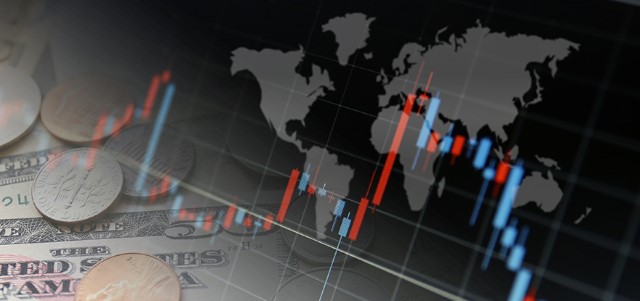"Businesses are now learning the lesson of how sensitive the global production chain really is," says Gabriel Felbermayr of the German Keel Institute for World Economy. To him, this latest spread of contagion is reminiscent of the lesson that economics has learned since the collapse of the Lehman Brothers in 2008. Then it became clear to many how sensitive the money world was, and it had concrete consequences: many firms organized their finances differently and became much less dependent on bank loans.
"The same thing can happen because of a corona-virus epidemic," Felbermayr says. The lesson now is: shorten the supply chain to be less sensitive to potential problems. In other words: production should start returning to Europe.

Will the rules of the game change?
At the moment, more damage to the economy is being done by states and competent institutions to combat the epidemic than by the virus itself. These measures include limiting travel and closing the facility. Particularly affected are companies operating internationally, but also all those that are networked with partners in the world or dependent on exports. French Economy Minister Bruno Le Mair sees the epidemic as an incentive to reverse something in a complete, so fragile supply chain that spans across the globe. The epidemic and its aftermath, he said, clearly showed an "irresponsible and unreasonable" dependence on China and the factories there.
Therefore, global delivery relationships should be rethought, especially with regard to the pharmaceutical and automotive industries, the French minister said during a visit to Athens. "When it comes to drugs, we just can't be 80 to 85 percent dependent on shipments from China," Le Mair said.
Calls for Assistance
The President of the European Chamber of Commerce in China, Joerg Wuttke, estimates that the economic consequences of the coronary virus are far more serious than most people think. "There are calls for help from all sides," Wuttke said in an interview. "This is still not a big problem for big concerns. But many small and family-owned businesses are already in huge trouble now. " Many of those made in China or in the country is already on the verge of bankruptcy. The whole array of them has had no income for weeks, Wuttke says.
It is not clear to many how much the epidemic will affect supply in Germany. The largest shipping companies Cosco and Maersk have not exported as many as 70 container ships in the past four weeks. Since the ships have been traveling for about six weeks to their destinations, those who left earlier are still arriving, "but soon they will be getting much less. And then many products could start missing in Europe, "says the Chamber President Joerg Wuttke. This could hit the pharmaceutical industry, as well as other industries, as of March.
German procurement directors, logisticians and supply chain officials have their hands full. "In many affected companies, special departments have been set up to identify potential supply problems from China and quickly find some alternatives," says Riccardo Kurto, a representative for China of the Material Economy, Supply and Logistics Association (BME).
The urgent search for an alternative outside China
"Some companies tell us that they are working with Chinese suppliers to try to identify existing and some future bottlenecks in order to make emergency plans.". First: how widespread is the epidemic? And second, even harder: how long will the epidemic last? Therefore Kurto says: "Decisive is that China's services clearly and accurately appear on the spread of the virus."
As the Association occurs members from China, many hurriedly seek alternatives and suppliers in other countries of the world. In many cases, they are assisted by Chinese partners themselves, because, they admit, their warehouses are almost empty. "That's why what is lacking in production is in some cases ordered from alternative manufacturers outside China, for example from Europe," says Kurto. Not only is it not enough to find an alternative manufacturer, but the complete logistics needs to be adapted quickly. And all of this, of course, is a huge deal.

Not enough is known about a good business decision
What is worse for a CEO is that the situation is not transparent at all, so they do not know what the right business moves would be. And the economic news conveyed by the media is more of a collage of individual impressions of what is affecting the crisis, and it may not be possible to come to any real conclusions the next day. The first moves are often wrong. Let's say: German airline Lufthansa completely stopped passenger traffic to China, and drastically reduced the number of cargo flights - from 15 to just 5 a week. But since the beginning of March, the company is introducing three more freight flights a week, though - because demand is there.
Admittedly, Lufthansa cargo pilots in China only remain until the plane is quickly emptied and reloaded and then immediately flown to Novosibirsk in Russia for the crew to rest there. Otherwise, carriers can rest assured that they will be among the first to benefit from the whole crisis because of the epidemic: since ships are in ports, after the panic, they will be the ones who have their hands full. The only question is when will it all go. And will the situation be the same as after some of the other crises that have affected the economy?

There is no going back to the old
In the German car industry, they are now afraid that they will not. It not only addresses the problem of supply chain stability but "it is more and more about falling demand," writes automotive expert Ferdinand Dudenhefer. He estimates that only around 77 million vehicles will be sold worldwide this year, as much as 7.5 million less than in 2017. This also means that German car factories will export less. And they're not the only ones fearing a drop in orders from overseas.
The German State Bank for Reconstruction and Development (KfW) already estimates that this epidemic will cause the German economy to stagnate until the summer and that economic growth in 2020 will be only about 0.8 percent - before the epidemic was estimated that it will be 0.9 percent. But this 0.8 percent estimate is based on the assumption that the epidemic will last only a few weeks and that it will primarily affect China.
It is already proving that this will not be the case, notes KfW chief economist Frici Keller-Gabe: new hot spots are emerging, such as Iran or South Korea. What particularly worries German economists is the situation in Italy. In addition to all its economic problems, the country is now the hardest hit by the coronavirus. And this will inevitably have consequences for the whole economy in Europe.
Source: dw.com





Share the News